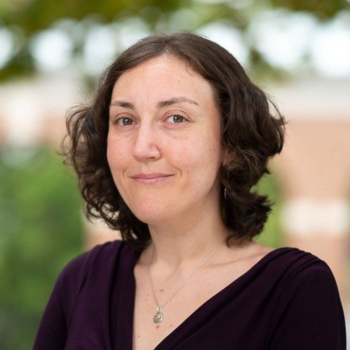
Neşe Devenot (she/they) is a Senior Lecturer in Writing at Johns Hopkins University, and they have been contributing to the interdisciplinary field of Psychedelic Studies since 2010. They completed a postdoctoral fellowship in the Department of Bioethics at the Case Western Reserve University School of Medicine and received their PhD in Comparative Literature from the University of Pennsylvania. Neşe’s scholarship explores the intersections between health humanities, psychedelic bioethics, neuroethics, and comparative literature. They were a 2015-16 Research Fellow at the New York Public Library’s Timothy Leary Papers and a Research Fellow with the New York University Psilocybin Cancer Anxiety Study, where they participated in the first qualitative study of participant experiences. Neşe’s book project on the role of narrative and literary devices in psychedelic experience is under contract with Columbia University Press. They are affiliated with The Ohio State University’s Center for Psychedelic Drug Research and Education (CPDRE), the Intercollegiate Psychedelics Network (IPN), the Psychedelic Educators Network (PEN), and Psymposia.
Colloquium Presentation: 10 November 2023 (WS 105 3.35-5pm)
TESCREAL hallucinations: Psychedelic and AI hype as inequality engines
Abstract
Despite promises to fix the world’s ills, leading figures in the AI and psychedelics industries are justifying their fields’ rapid expansion by claiming to offer solutions to the precise harms that their nascent systems would actively perpetuate (namely: political polarization, the rise of fascism, environmental degradation, and increasing rates of mental illness—all of which are associated with rising inequality in society). Rather than addressing the systemic drivers of these interrelated problems, major funders are explicitly building the psychedelics industry to extract wealth for ever-widening inequality, propelled by an elitist worldview that is widely-held in Silicon Valley. The backbone of this worldview is the TESCREAL bundle of ideologies—an acronym coined by the critical AI scholars Émile Torres and Timnit Gebru to describe an interrelated cluster of belief systems, linking transhumanism to Effective Altruism and longtermism.
Taken together, TESCREALism amounts to the “court philosophy” of the global oligarch class, serving to justify the acceleration of inequality towards the goal of colonizing far-distant galaxies. In its most dangerous formulation, this end goal can justify nearly any means. The influence of TESCREALism on the psychedelics field emphasizes how the rhetorics of healing and intergenerational benefit are obscuring the extent to which different perspectives cannot actually coexist within the “big tent” of the psychedelics industry. I argue that if we want AI and psychedelics to be used as forces for healing, connection, and expression, now is the time to name—and resist—the corporate takeover of both industries, because we might not get a second chance.